Uncategorized
-
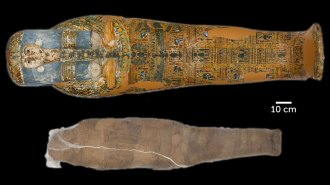 Archaeology
ArchaeologyAn ancient Egyptian mummy was wrapped in an unusual mud shell
Commoners in ancient Egypt may have used mud in place of expensive resin to imitate royal mummification techniques.
-
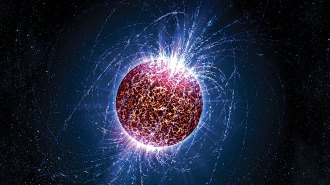 Cosmology
CosmologyEinstein’s theory of general relativity unveiled a dynamic and bizarre cosmos
Albert Einstein’s theory of general relativity foretold space-bending beasts, cosmic shock waves and mysterious forces.
-
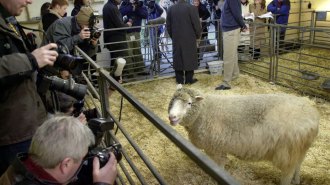 Science & Society
Science & SocietyTop 10 science anniversaries to celebrate in 2021
DNA, Maxwell’s demon and Dolly the Sheep all make the list. But the one we’re most excited about at Science News is our centennial.
-
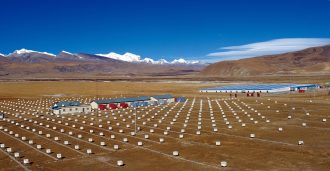 Physics
PhysicsThe Milky Way’s newfound high-energy glow hints at the secrets of cosmic rays
Gamma rays with energies approaching a quadrillion electron volts emanate from the disk of the Milky Way.
-
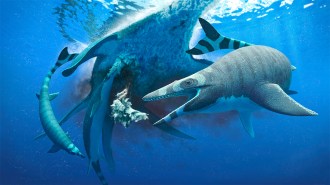 Paleontology
PaleontologyThis ancient sea reptile had a slicing bite like no other
Right up until 66 million years ago, the sea was a teeming evolutionary laboratory with a small, agile, razor-toothed mosasaur patrolling the waters.
By Jake Buehler -
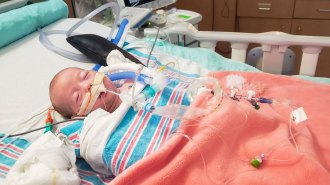 Health & Medicine
Health & MedicineCOVID-19 precautions may be reducing cases of flu and other respiratory infections
The same efforts to prevent COVID-19’s spread can keep other respiratory infections at bay. But once we go back to normal, outbreaks could be larger.
-
 Climate
ClimateShip exhaust studies overestimate cooling from pollution-altered clouds
Lines of clouds formed by ship exhaust offer a window into aerosol-cloud interactions but may overestimate how much pollution-altered clouds cool the climate.
-
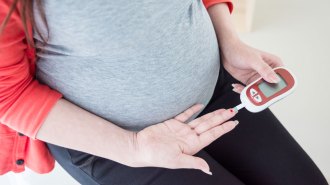 Health & Medicine
Health & MedicineDiabetes during pregnancy is tied to heart trouble later in life
Gestational diabetes may increase a woman’s risk of having hardened arteries later in life, a long-term study finds.
-
 Health & Medicine
Health & MedicineThe antidepressant fluvoxamine could keep mild COVID-19 from worsening
Newly infected patients who chose to take fluvoxamine quickly recovered, while 12.5 percent who didn’t wound up hospitalized.
-
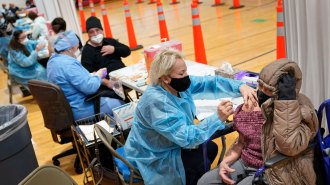 Health & Medicine
Health & MedicineWhat do COVID-19 vaccines mean for daily life in the months ahead?
Effective COVID-19 vaccines are a ray of hope. But masks and distancing are still necessary, especially with contagious variants spreading.
-
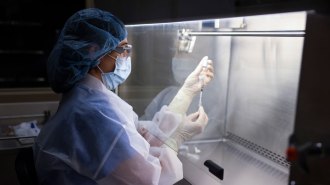 Health & Medicine
Health & MedicineOne-shot COVID-19 vaccine is effective against severe disease
The effectiveness of Johnson & Johnson’s vaccine at preventing hospitalization and death holds up against a South Africa variant of the coronavirus.
-
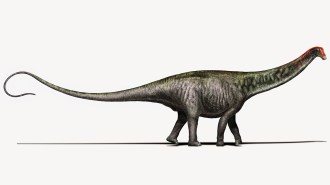 Animals
Animals50 years ago, scientists made the case for a landlubbing Brontosaurus
In 1971, a scientist argued for a landbound Brontosaurus instead of a swampy swimmer. Recent evidence comes from studies of its ancient environment.